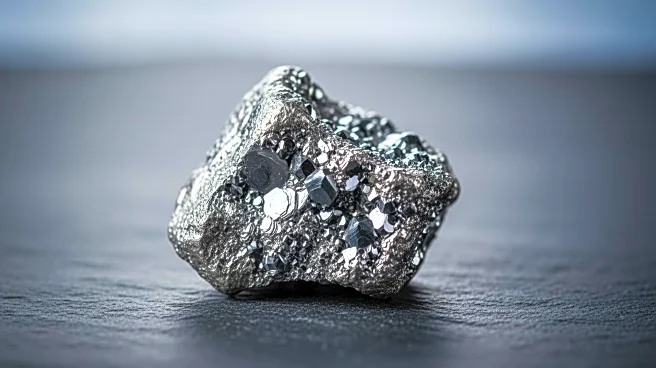What's Happening?
Americas Gold and Silver Corporation has announced a binding agreement to acquire Crescent Silver, LLC and its Crescent Mine in Idaho for $65 million. The acquisition includes $20 million in cash and 1.1
million common shares of Americas Gold and Silver. The Crescent Mine is located near the company's Galena Complex, offering operational synergies. The site contains high-grade silver, copper, and antimony, similar to the materials processed at Galena. The acquisition aims to boost silver and antimony output to meet domestic demand for these critical metals. The Galena Complex has produced over 447,000 pounds of antimony this year, and the company claims to have the largest active antimony mining operation in the U.S.
Why It's Important?
The acquisition is significant as it strengthens Americas Gold and Silver's position in the U.S. mining industry, particularly in the production of antimony, a critical metal. With China temporarily pausing its ban on antimony exports to the U.S., the acquisition helps mitigate supply chain vulnerabilities and addresses domestic demand from defense and industrial sectors. The Crescent Mine's potential to add 1.5 million ounces of silver annually supports the growing demand for silver in clean technology and electronics. However, the company faces risks related to historical resource estimates, potential production challenges, and the need for significant equity financing.
What's Next?
Americas Gold and Silver will focus on ramping up production at the Crescent Mine, leveraging its spare milling capacity at Galena and Coeur mills. The company will need to address potential technical hurdles and unforeseen expenses associated with reviving a long-idle mine site. Additionally, the acquisition requires substantial equity financing, which may lead to shareholder dilution. The company will also monitor long-term antimony pricing and geopolitical supply factors, which remain volatile and uncertain.
Beyond the Headlines
The acquisition highlights the strategic importance of securing domestic sources of critical metals like antimony, especially in light of geopolitical tensions and supply chain vulnerabilities. It underscores the need for U.S. industries to reduce reliance on foreign suppliers and enhance self-sufficiency in critical mineral production. The deal also reflects broader trends in the mining industry, where companies are increasingly focused on sustainability and meeting the demands of clean technology sectors.










